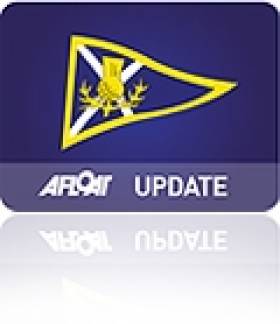Displaying items by tag: Laird of the Loch
New Courses for All Fleets at Scottish Series
Today (7 January) Clyde Cruising Club, organisers of sailing's Brewin Dolphin Scottish Series, announced exciting developments for the 2011 event. The Scottish Series will see a refreshed offering, both on the water and shoreside, benefitting competitors and spectators a like. The news will be of interest to members of ICRA,
The 2011 Brewin Dolphin Scottish Series takes place over the bank holiday weekend from Friday 27 to Monday 30 May in Tarbert, Loch Fyne in the Clyde Estuary. Three race areas on the broad waters of the Loch will provide separate racing for IRC classes; One Design classes and CYCA classes (with and without spinnakers).
Clyde Cruising Club's main aim has been to provide fresh challenges for competitors, which has prompted changes including:
New courses for all fleets, providing variety to the standard windward/leeward course
The introduction of an Inshore Coastal (daytime) race for IRC classes which will take place during the weekend
Limitations to crew numbers
Some shore based start lines for the CYCA classes
Replacing the IRC sportsboats handicap starts with One Design class starts
2011 introduces a 'Laird of the Loch' event, an invitational competition between 2010 class winners in One Designs which will take place immediately before the Series on Thursday 26 May
Commodore John Watson, who takes over the role from Howard Morrison for the 2011 event, said "This is an exciting time for us, the event and the competitors. Over the last couple years we realised that the event needed rejuvenating and thought it was time to give it a bit of a shake up. Our main aim in changing the event has been to inject more fun and exciting elements of sailing to Tarbert.
"We hope that this refreshed offering will encourage more sailors from across the UK and further afield to consider entering the event and that past competitors will continue to return to the stunning waters of Loch Fyne."
Jamie Matheson, Chairman of Brewin Dolphin, title sponsors of the Scottish Series said "We have been sponsoring the Scottish Series for the past eleven years and think the proposed changes to the event format will offer something new and challenging for competitors."
"Clyde Cruising Club introduced these changes as a result of competitor consultation and it will be interesting to see how the developments influences sailing – it will no doubt make the event more enjoyable for all taking part."
Competitors are being encouraged to sign up early. Further details and race entry forms for this year's Brewin Dolphin Scottish Series are available now from the Brewin Dolphin Scottish Series website.





























































